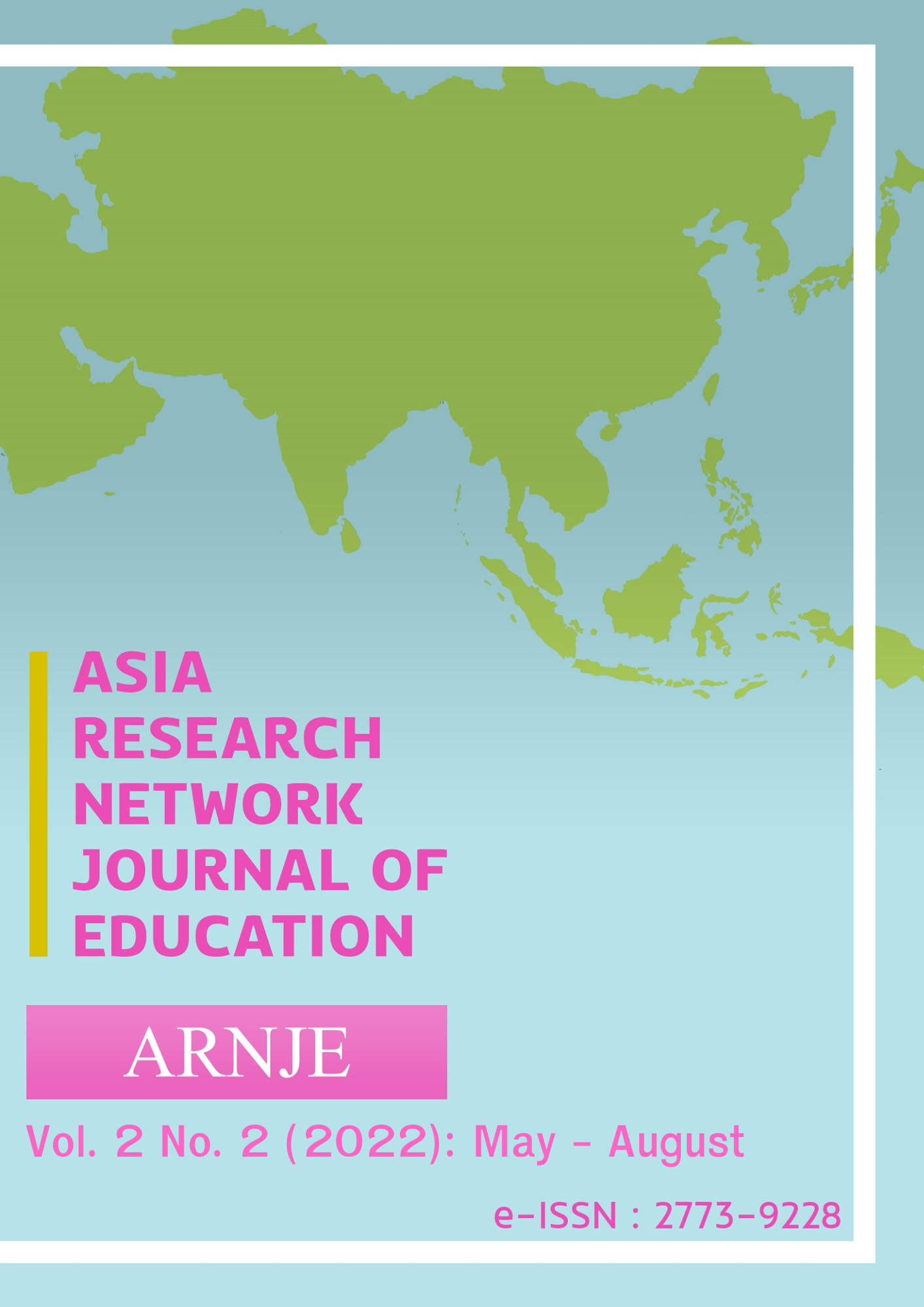A Study of Problems and the Need for Innovative Teaching of Pre-service Science Teachers: A Case Study of a Rajabhat University in the North
Main Article Content
Abstract
This study was survey research. The purpose was to explore the problem and the need for innovative teaching of pre-service science teachers. The sample was 30 pre-service science teachers from first-year to fifth-year in General Science, Faculty of Education. The overall was 150 obtained by stratified random sampling. The instruments used were a survey of the problem and the need for innovative teaching of pre-service science teachers, using a 1-5 rating scale. The survey consisted of 5 components of innovative teaching: 1) Application of innovative thoughts in teaching science; 2) The innovative use of teaching science content; 3) The use of innovative teaching methods and teaching strategies in science; 4) The innovative use of science teaching resources and 5) Innovative evaluation. The data was collected using Google Forms and analyzed using a quantitative data analysis method. The statistical values used in the data analysis were mean and standard deviation. The quality of the tools is approved by three experts who assess the suitability of the questions. The results suggested that all items of the suitability index averaged between 4.24-4.40. The study suggested that the average from the survey is 4.48, meaning the requirement to encourage innovative teaching of pre-service science teachers, The application of innovative thoughts in teaching science and the use of innovative teaching methods and teaching strategies in science are at the highest level.
Article Details

This work is licensed under a Creative Commons Attribution-NonCommercial-NoDerivatives 4.0 International License.
Copyright: CC BY-NC-ND 4.0
References
Amelink, C. T., Watford, B. A., & Scales, G. (2012). Developing innovative thinking among engineering undergraduates: Examining the role of slate enabled technology. Frontiers in Education Conference (FIE), October 3-6 2012, 1-6.
Australian National Training Authority (ANTA). (2021). Innovation: Ideas That Work for Trainers of Innovation at Work Skills.
Barkley, E. F., Cross, K. P., & Major, C. H. (2014). Collaborative Learning Techniques: a handbook for college faculty (3rd ed.). John Wiley & Sons.
Bellanca, J. A. (2010). 21st century skills: Rethinking how students learn. Solution Tree Press.
Bender, W. N. (2012). Project-based learning: Differentiating instruction for the 21st century. Corwin.
Boks, C. , & Pascual, O. (2004). The role of success factors and obstacles in design for environment: a survey among Asian electronics companies. Information System for Equitable Education.
Bennett, S. (Ed.). (2012). Innovative thinking in risk, crisis, and disaster management. Gower Publishing.
Committee of the Research and Educational Quality Assurance Division. (2017). Thailand 4.0 driving model Thailand to Wealth, Stability and Sustainability.
Edwards, A. (2012). New technology and education. London. A&C Black.
Education Council Secretariat Ministry of Education. (2021). National Education Standards.
Graduate Marketing Course. Business Education Innovation Journal, 7(1), 43-50.
Internal Education Quality Assessment Committee. (2021). Internal education quality assessment report Faculty of Education.
Kriengsak Chareonwongsak. (2015). Opening the door to ASEAN through innovative thinking. NACC pamphlet "Honesty", 15(55), 43-45.
Lee, C., & Benza, R. (2015). Teaching Innovation Skills: Application of Design Thinking in a
Lee, S. (2018). Innovation, Entrepreneurship & Sustainability Summer Program. National Taiwan University.
Ministry of Education. (2021). Draft standards for undergraduate qualifications Education and Education 2018.
Nonchanit Achawapon. (2014). Innovative teacher identities for the 21st century of student teachers: Need assessment is necessary [Doctoral dissertation, Chulalongkorn University]. https://so01.tcithaijo.org/index.php/OJED/article/view/35615.
Office of the Education Council Secretariat. (2017). National Education Plan 2017-2026.
Office of the Higher Education Commission. (2007). 15-year Higher Education Plan, Issue 2 (2008 - 2022).
Strategic Planning Committee Phibunsongkhram Rajabhat University. (2016). Strategic Plan Rajabhat University Phibunsongkhram 2016-2021.
Suparee, M., & Yuenyong, C. (2021). Enhancing Grade 11 Students’ Learning and Innovation Skills in the STS Electric Unit. Asia Research Network Journal of Education, 1(2), 96–113. Retrieved from https://so05.tci-thaijo.org/index.php/arnje/article/view/253809
Teachers Council of Thailand Board. (2013). Announcement of the Teachers Council of Thailand Committee on Knowledge and Competencies and professional experience of teacher practitioners school administrators education administrator and study supervision in accordance with the Teachers Council of Thailand Regulations on Professional Standards B.E. 2013.
Thooptong Kwangsawad. (2009). Teaching thinking skills. Faculty of Education Mahasarakham University.
Varnhagen and Orthers. (2010). Teaching, Research, and Discovery Learning Recommendations for a Great University. Great University.


